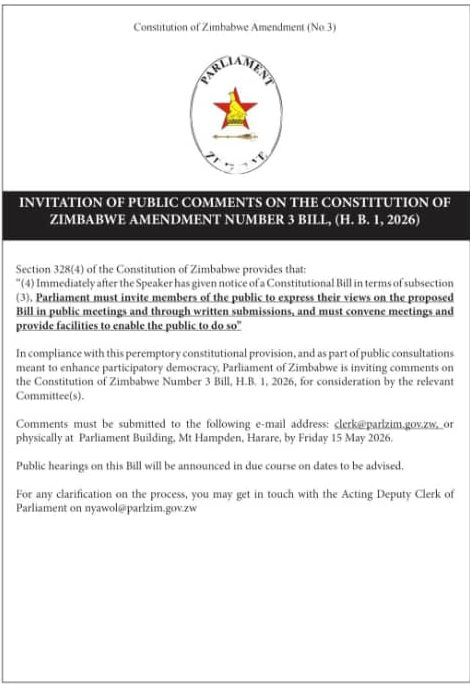Current Affairs
Lenient Fines for Chinese Nationals in Cocaine Case Spark Outrage

By Rumbidzai Rudanda
In a high profile drug bust in Harare, Zimbabwe, authorities raided a party where ten Chinese nationals were allegedly found with cocaine, and the leniency of their punishment has ignited significant controversy, raising questions about fairness in Zimbabwe’s legal system and the broader implications for justice in the country.
On Wednesday, Harare police conducted a raid on a private residence describing the gathering as “drug-fueled,” and nine of the ten Chinese nationals were charged with illegal possession of cocaine an offense that typically carries severe penalties under Zimbabwean law remarkably, after spending just one night in custody, they were released on bail following their court appearance.
The court imposed a fine of US$150 on each of the nine convicted individuals, offering an alternative of a six-month jail term, which has been met with widespread criticism, as veteran journalist Oscar Ndaba Pambuka called the fine “laughably lenient” and expressed frustration over the disparity in sentencing compared to local offenders who often face harsher penalties for similar or lesser offenses.
Under Zimbabwe’s Dangerous Drugs Act, serious drug offenses can result in up to 15 years in prison, and the significantly lighter penalties imposed in this case raise concerns about the consistency and integrity of the legal system, Pambuka noted that in China, similar charges could lead to far harsher punishments, including the death penalty for severe drug related crimes, prompting discussions about how foreign nationals are treated under Zimbabwean law versus local citizens.
The lenient sentencing has sparked a heated debate among Zimbabweans, with many citizens questioning whether justice was truly served, as social media platforms, particularly X, have been abuzz with discontent, highlighting sentiments such as, “Why do foreigners get off so lightly while locals face years in jail for less?” and calling for stricter enforcement of drug laws in light of the growing issue of drug related crimes in Harare.
These reactions underscore a broader sentiment regarding perceived inequalities within the judicial system, raising questions about the rule of law and whether the judicial system is impartial, as this case underscores ongoing tensions related to sentencing disparities and the enforcement of drug laws in Zimbabwe.
The public’s frustration reflects deeper societal issues, including perceptions of favoritism and inequality in legal proceedings, and as drug related crimes continue to rise in Harare, expectations for equitable justice also increase, prompting advocates for justice to urge the courts to reconsider their approach to sentencing to ensure fairness and consistency, regardless of an individual’s nationality.
The debate surrounding this case is far from over, and as public scrutiny intensifies, policy makers and legal authorities will be under pressure to address these concerns, with the outcome of this case potentially serving as a pivotal moment for Zimbabwe’s approach to drug-related offenses and broader judicial practices.
Current Affairs
“No Matter Where They Are in SA” — Govt Vows Full Medical Support for Zimbabweans

The Minister of Foreign Affairs and International Trade, Dr Amon Murwira, has assured Parliament that the Government of Zimbabwe will ensure its citizens in South Africa receive full access to health services, regardless of their circumstances.
Speaking during the National Assembly Questions and Answers Session in the Parliament of Zimbabwe on Wednesday, Dr. Murwira said the government is actively working through its diplomatic missions to safeguard the welfare of Zimbabweans abroad.
“We have our Consulate in South Africa, who are making sure that Zimbabweans in South Africa get health access, no matter what,” he said.
The Minister noted that reports alleging that Zimbabweans and other foreign nationals were being denied medical and health services in South Africa had not been formally communicated to the Government of Zimbabwe.
“This issue of denied medical and health services to Zimbabweans and other foreigners has not been fully communicated to us formally, but it is being discussed by people who want to push their agendas,” Dr Murwira told legislators.
He reaffirmed the government’s commitment to protecting citizens wherever they may be.
“No matter where the Zimbabwean is, be it in prison or everywhere, we make sure that they get full medical services,” he said.
The remarks come amid ongoing debate around access to healthcare services for migrants in South Africa and concerns raised over the treatment of foreign nationals within the region.
The Minister’s statement underscores Harare’s position that Zimbabwean diplomatic missions remain actively engaged in ensuring citizens’ rights and access to essential services abroad.
Current Affairs
HIV Network Raises Concern Over Halted US Health Funding Talks

The Zimbabwe National Network of People Living with HIV (ZNNP+) has expressed concern over the possible impact of Zimbabwe’s decision to discontinue negotiations on a proposed US$350 million health funding agreement with the United States.
In a statement released on Monday, ZNNP+, which represents more than 1.3 million people living with HIV (PLHIV) in Zimbabwe, warned that the move could put lives at risk if alternative funding is not secured.
The organisation acknowledged the Government’s responsibility to protect national sovereignty but said international health partnerships have played a critical role in Zimbabwe’s HIV response for decades. Support from US-backed programmes such as PEPFAR and USAID has helped ensure access to antiretroviral therapy, viral load testing, and treatment for advanced HIV-related conditions.
ZNNP+ said suspending negotiations could create a major funding gap that the national budget may struggle to cover, potentially affecting the supply of life-saving medication and support services.
The group raised concerns about possible treatment interruptions, warning that any break in antiretroviral therapy could lead to drug resistance, opportunistic infections, and increased deaths. It also cautioned that Zimbabwe’s progress toward the global 95-95-95 HIV targets could be reversed.
ZNNP+ further noted that health funding supports more than medication, including community health workers, rural clinics, and support systems relied upon by vulnerable populations.
The organisation also warned that rejecting US government funding could weaken trust with other international partners, including the Global Fund, the United Nations, and the European Union.
ZNNP+ has appealed to the Government of Zimbabwe, through the Ministry of Health and Child Care and the Ministry of Foreign Affairs and International Trade, to re-engage in dialogue and put the lives of people living with HIV at the centre of negotiations.
The organisation also called on the government to provide a clear contingency plan outlining how the US$350 million funding gap would be covered if talks do not resume, to ensure that no person living with HIV is left without treatment or support.
ZNNP+ said it remains ready to work with all stakeholders to help develop an agreement that protects national interests while safeguarding public health.
Current Affairs
Public Invited to Comment on Constitution of Zimbabwe Amendment Bill

Everisto Zhuwao
Members of the public are being invited to provide input on the proposed Constitution of Zimbabwe Amendment No. 3 Bill (H.B. 1, 2026).
Under Section 328(4) of the Constitution of Zimbabwe, once the Speaker gives notice of a Constitutional Bill, Parliament is required to solicit public views. This can be done through public meetings as well as written submissions. The law further mandates that Parliament convene meetings and provide facilities to ensure that the public can participate fully in the consultation process.

The invitation represents an opportunity for Zimbabweans to engage directly in shaping the country’s constitutional framework. Citizens are encouraged to study the proposed Bill and share their views, either by attending public forums or submitting their comments in writing.
Parliament will announce dates, venues, and procedures for the public consultations to ensure inclusive and transparent participation.
This initiative reinforces the constitutional principle that democratic governance is strengthened through active citizen engagement, providing Zimbabweans with a platform to voice opinions on legislation affecting the nation.
-

 Current Affairs3 months ago
Current Affairs3 months agoOperation restore order
-

 Crime and Courts5 months ago
Crime and Courts5 months agoMasasi High School Abuse Scandal Sparks Public Outcry
-

 Crime and Courts5 months ago
Crime and Courts5 months agoKuwadzana Man Jailed for Reckless Driving and Driving Without a Licence
-

 Current Affairs7 months ago
Current Affairs7 months agoBreaking: ZIMSEC June 2025 Exam Results Now Available Online
-

 Current Affairs6 months ago
Current Affairs6 months agoMunhumutapa Day: Zimbabwe’s Newest Public Holiday Set for Annual Observance
-

 Current Affairs5 months ago
Current Affairs5 months agoBREAKING NEWS: ZANU PF Director General Ezekiel Zabanyana Fired
-

 Current Affairs6 months ago
Current Affairs6 months agoNo Racism in Our Cricket: Government
-

 Current Affairs6 months ago
Current Affairs6 months agoGovernment Bans Tinted Car Windows in Nationwide Crime Crackdown



